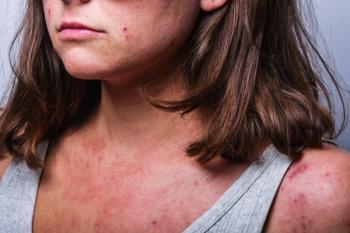
Tirzepatide effective in reducing A1c in children, adolescents with type 2 diabetes
The Phase 3 SURPASS-PEDS trial found tirzepatide improved glycemic control and weight outcomes in youth-onset type 2 diabetes, with benefits lasting one year.
Tirzepatide significantly improved glycemic control and body mass index (BMI) in children and adolescents with type 2 diabetes, with effects sustained through 52 weeks, according to data from the Phase 3 SURPASS-PEDS trial. Results were presented on September 17, 2025, at the European Association for the Study of Diabetes (EASD) Annual Meeting 2025 and simultaneously published in The Lancet.1,2
Study Design and Population
SURPASS-PEDS was a multinational, randomized, double-blind, placebo-controlled study that enrolled 99 participants across 39 sites in eight countries. Eligible participants were aged 10 to <18 years, with a mean baseline HbA1c of 8.04% and mean BMI of 35.4 kg/m². Patients were randomly assigned to receive tirzepatide 5 mg, 10 mg, or placebo once weekly for 30 weeks, followed by an open-label extension in which all participants received tirzepatide through week 52.2
Glycemic control and weight-related outcomes
At 30 weeks, tirzepatide met the primary endpoint of HbA1c reduction. The pooled tirzepatide group achieved a mean decrease of 2.23%, compared with an increase of 0.05% in the placebo group (estimated treatment difference –2.28%; p<0.0001) (2). In the 10 mg arm, 86.1% of participants achieved HbA1c ≤6.5%.1
Tirzepatide also produced meaningful reductions in BMI. The 10 mg group showed an average 11.2% reduction and the 5 mg group a 7.4% reduction, versus 0.4% for placebo at week 30.2 These BMI improvements, alongside glycemic benefits, were sustained through 52 weeks.1,2
During the open-label extension, all participants received tirzepatide. Both HbA1c and BMI improvements observed in the double-blind phase continued through one year of treatment, supporting the durability of effect.
Tirzepatide adverse events and severity
The safety profile of tirzepatide in adolescents was consistent with prior adult trials. The most common adverse events were gastrointestinal, including diarrhea, nausea, vomiting, and abdominal pain. These events were generally mild to moderate in severity and occurred primarily during dose escalation. Discontinuation rates due to adverse events were low, and no severe hypoglycemia occurred.1,2
"Youth living with type 2 diabetes often face a more aggressive disease course, and in many instances, first-line treatments like metformin and basal insulin, fail to control their A1C adequately," said Tamara Hannon, MD, director of the Clinical Diabetes Program, Indiana University School of Medicine and lead trial investigator, in a statement.1
"The SURPASS-PEDS results show that Mounjaro delivered significant and clinically meaningful improvements in blood sugar, BMI and fasting serum glucose in pediatric patients," added Hannon. "These results offer a promising opportunity to help shift the long-term health trajectory for young people living with this complex condition."
Regulatory Outlook
Eli Lilly and Company has submitted SURPASS-PEDS data to regulatory authorities worldwide seeking an expanded indication for tirzepatide.
References:
- Lilly's Mounjaro (trzepatide), a GIP/GLP-1 dual receptor agonist, reduced A1C by an average of 2.2% in a Phase 3 trial of children and adolescents with type 2 diabetes. Eli Lilly and Company. Press release. Published September 17, 2025. Accessed September 19, 2025. https://investor.lilly.com/news-releases/news-release-details/lillys-mounjaro-tirzepatide-gipglp-1-dual-receptor-agonist
- Hannon TS, Chao LC, Barrientos-Perez M, et al. Efficacy and safety of tirzepatide in children and adolescents with type 2 diabetes (SURPASS-PEDS): a randomised, double-blind, placebo-controlled, phase 3 trial. The Lancet. Published September 17, 2025. Accessed September 19, 2025. https://www.thelancet.com/journals/lancet/article/PIIS0140-6736(25)01774-X/abstract?rss=yes
Newsletter
Access practical, evidence-based guidance to support better care for our youngest patients. Join our email list for the latest clinical updates.






